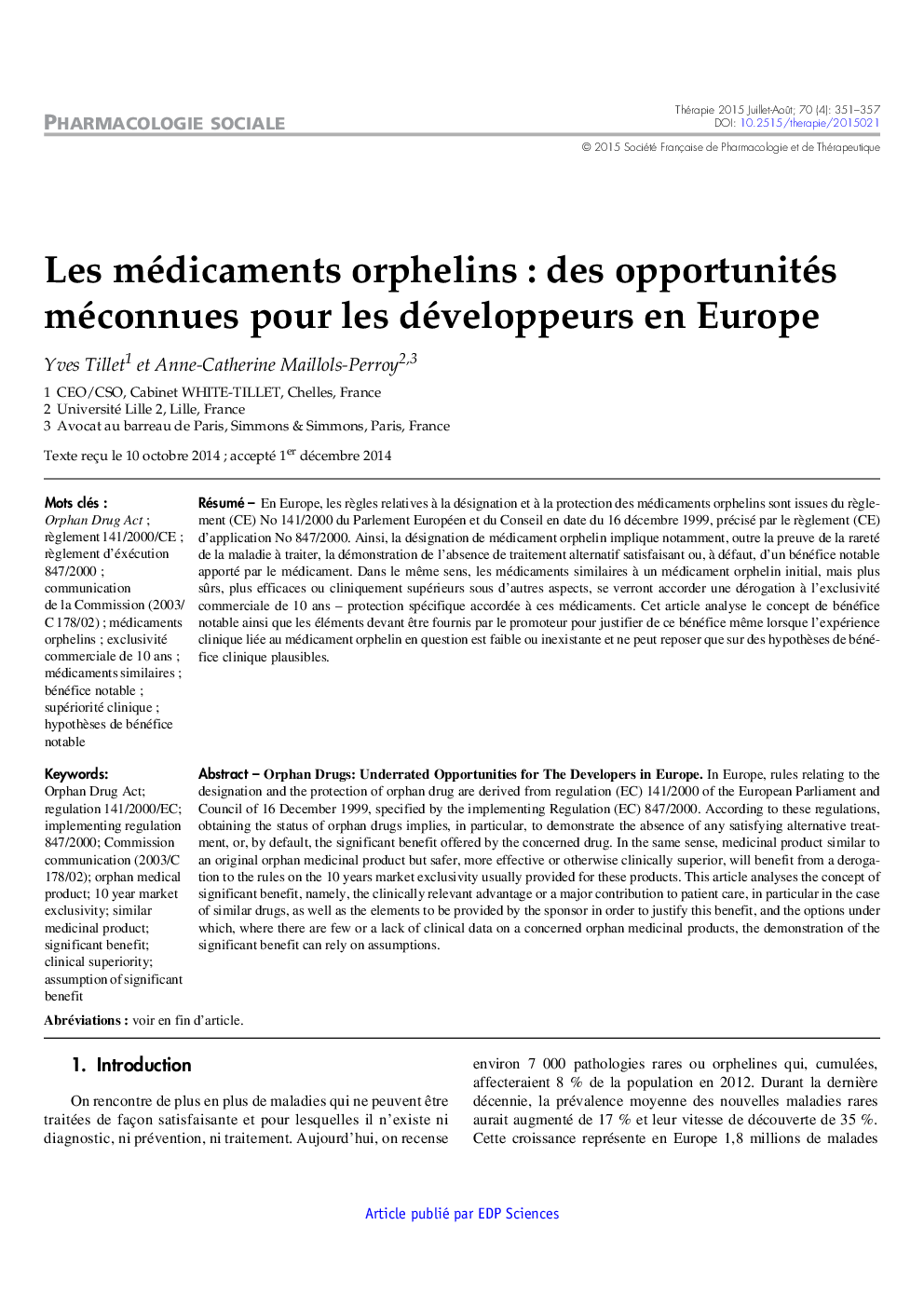| Article ID | Journal | Published Year | Pages | File Type |
|---|---|---|---|---|
| 2578684 | Thérapie | 2015 | 7 Pages |
Abstract
In Europe, rules relating to the designation and the protection of orphan drug are derived from regulation (EC) 141/2000 of the European Parliament and Council of 16 December 1999, specified by the implementing Regulation (EC) 847/2000. According to these regulations, obtaining the status of orphan drugs implies, in particular, to demonstrate the absence of any satisfying alternative treatment, or, by default, the significant benefit offered by the concerned drug. In the same sense, medicinal product similar to an original orphan medicinal product but safer, more effective or otherwise clinically superior, will benefit from a derogation to the rules on the 10Â years market exclusivity usually provided for these products. This article analyses the concept of significant benefit, namely, the clinically relevant advantage or a major contribution to patient care, in particular in the case of similar drugs, as well as the elements to be provided by the sponsor in order to justify this benefit, and the options under which, where there are few or a lack of clinical data on a concerned orphan medicinal products, the demonstration of the significant benefit can rely on assumptions.
Keywords
Related Topics
Health Sciences
Pharmacology, Toxicology and Pharmaceutical Science
Pharmacology, Toxicology and Pharmaceutics (General)
Authors
Yves Tillet, Anne-Catherine Maillols-Perroy,
